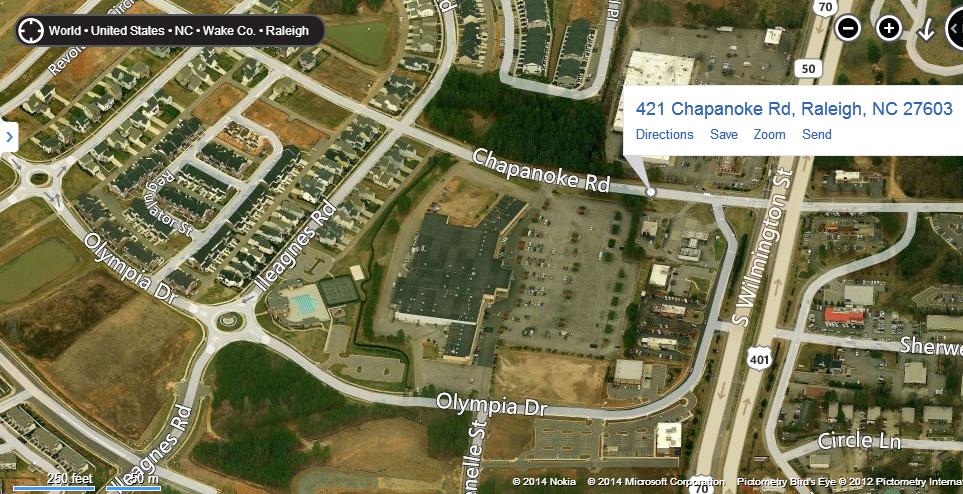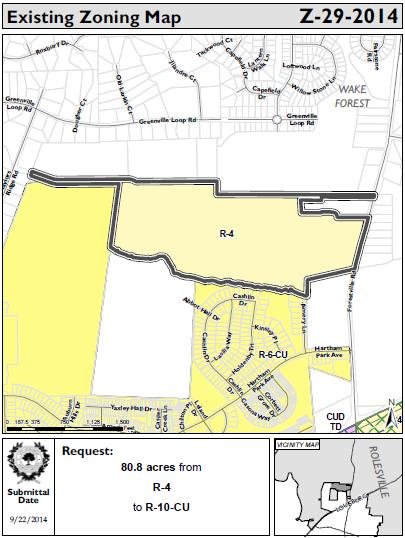It was a long day for the Raleigh City Council Tuesday, with their standard afternoon session at 1 p.m. and a public hearings session that stretched well into the night.
Three items — 4, 9.2, 18.1 — were pulled from the consent agenda for further discussion, with the remaining items approved.
Item 4 prompted Councilor Weeks to express his concern about a pawnshop on Chapanoke Road being allowed to conduct business in an area surrounded by neighborhoods. The CX zoning restrictions were also discussed, with some Councilors debating about whether a pawnshop could operate under such restrictions.

Bing Maps
The site of a proposed pawn shop
Ultimately, City Attorney Thomas McCormick told the Council, “You might want to send this one to committee for one term.”
The Council did just that, referring the item to the Law and Public Safety Committee. Items 9.2 and 18.1 of the consent agenda were approved soon after that.
Under the “Report and Recommendation of the City Manager” section, three items were approved, including a project to improve sidewalks on Capital Boulevard and the Raleigh membership of the Transit Plan Advisory Committee for Wake County.
In the “Report and Recommendation of the Raleigh Historic Development Commission” section, Council approved the Raleigh Historic Landmark designation for the Garland Scott and Toler Moore Tucker House on 418 North Person Street. After, Council discussed whether to remove the Raleigh Historic Landmark designation from the Bill and Betty Weber House.
Because the owner of the house wanted the designation removed in order to sell it, most Councilors supported her decision, seeing it as a property rights issue.
The Council approved the de-designation with a vote of 6-1, with Council Stephenson voting no.
After the closing of the afternoon session, Council reconvened for the public hearings meeting later that evening. Two of the public hearings generated much discussion.
The first, a hearing to consider the widening of Mitchell Mill Road to four lanes, focused on problems neighborhood residents would face with traffic congestion and noise. The owner of one particular house spoke, saying his property value would be diminished by the proposed project.
Council asked staff many questions relating to alternatives to the proposed plan in order to solve the noise and traffic issues. The project was eventually approved with the caveat that alternatives would be explored.

Zoning case Z-29-14 would allow for higher-density residential development
The last hearing of the night focused on the rezoning of 81 acres on the west side of Forestville Road from Residential-4 to Residential-10-Conditional Use. The proposed rezoning would allow developers to build higher-density communities within that land.
Residents from neighborhoods surrounding the 81 acres showed up in force, advocating well past 9 p.m. for Council to say ‘no’ to the rezoning. The residents’ concerns included the increase in traffic caused by the new development and the flooding situation that the new residences would exacerbate.
Council made a motion to hold the public hearing open until January 6 to allow for both parties to work together.
